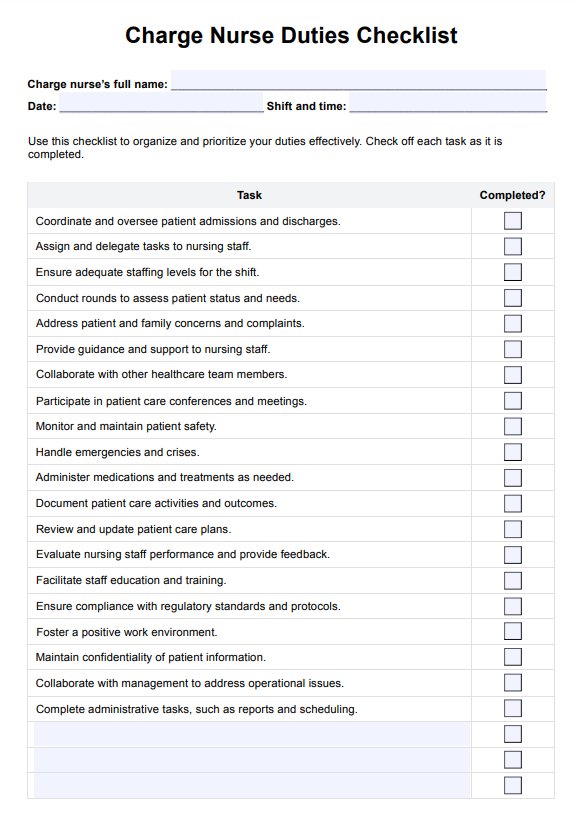Healthcare facilities, including hospitals, clinics, nursing homes, and ambulatory care centers, utilize charge nurse checklists to streamline operations, optimize patient care delivery, and ensure compliance with regulatory standards.

Charge Nurse Duties Checklist
Take charge with our comprehensive Charge Nurse Duties Checklist. Free PDF download available!
Charge Nurse Duties Checklist Template
Commonly asked questions
Charge nurses are accountable for ensuring efficient patient care delivery, managing nursing staff, and maintaining protocol compliance.
The qualifications of a charge nurse typically include a Bachelor of Science in Nursing (BSN) degree, registered nurse (RN) licensure, and several years of clinical experience. Additionally, charge nurses may pursue certifications in specialized areas of nursing. As for salary, charge nurses' earnings vary based on location, experience, facility size, and level of responsibility.
EHR and practice management software
Get started for free
*No credit card required
Free
$0/usd
Unlimited clients
Telehealth
1GB of storage
Client portal text
Automated billing and online payments











